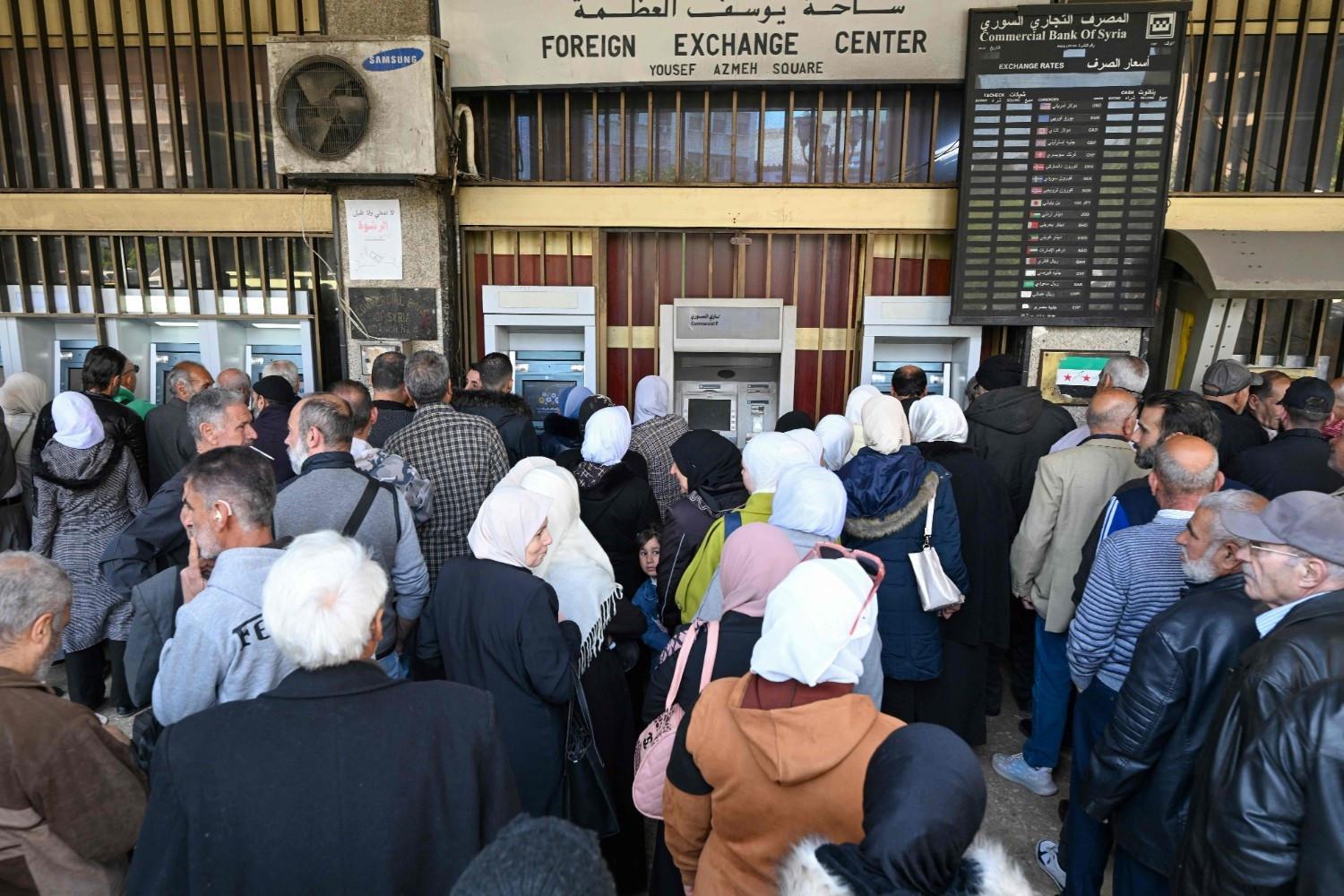
People wait their turn in a queue outside an ATM in Damascus on April 16, 2025.
Syria has announced a 200 percent hike in public sector wages and pensions, as it seeks to address a grinding economic crisis after the recent easing of international sanctions.
Over a decade of civil war has taken a heavy toll on Syria's economy, with the United Nations reporting more than 90 percent of its people live in poverty.
In a decree published by state media, interim President Ahmed al-Sharaa issued a "200 percent increase to salaries and wages... for all civilian and military workers in public ministries, departments and institutions."
Under the decree, the minimum wage for government employees was raised to 750,000 Syrian pounds per month, or around $75, up from around $25.
A separate decree granted the same 200 percent increase to retirement pensions included under current social insurance legislation.
Since war broke out in 2011, Syria has faced a painful economic crisis that has persisted even after his December ouster by Islamist-led forces.
The war ravaged the country's infrastructure and industry, while sanctions compounded Syria's economic woes.
Last month, the United States and European Union announced they would lift economic sanctions in a bid to help the country's recovery.
Also in May, Syria's Finance Minister Mohammed Barnieh said Qatar, a key backer of the new Islamist-led government, would help it pay some public sector salaries.
The extendable arrangement was for $29 million a month for three months, and would cover "wages in the health, education and social affairs sectors and non-military" pensions, he had said.
Syria has some 1.25 million public sector workers, according to official figures.
Many Syrians wait long hours at banks or ATMs to withdraw money due to cash shortages, while prices for basic goods have continued to rise.